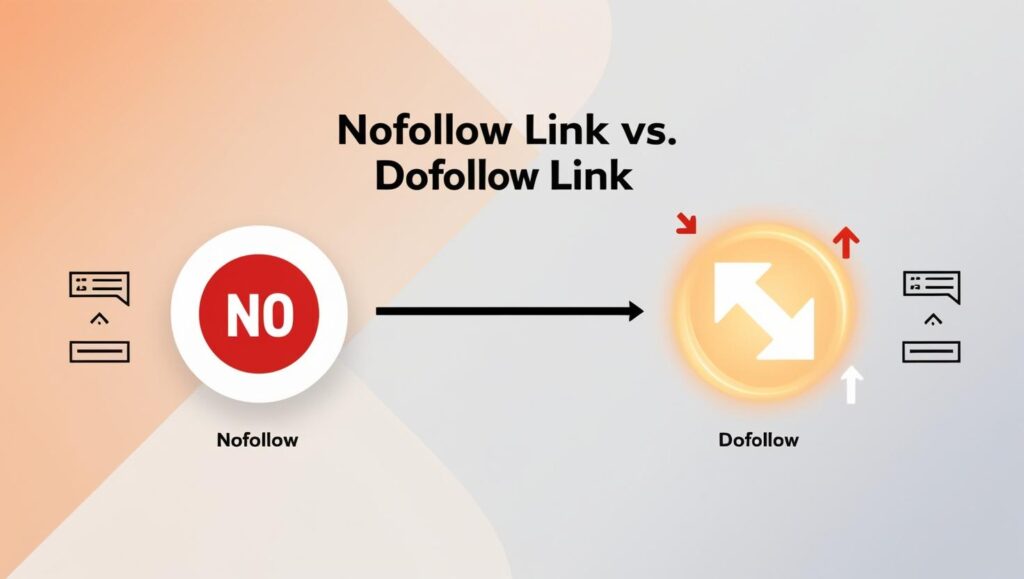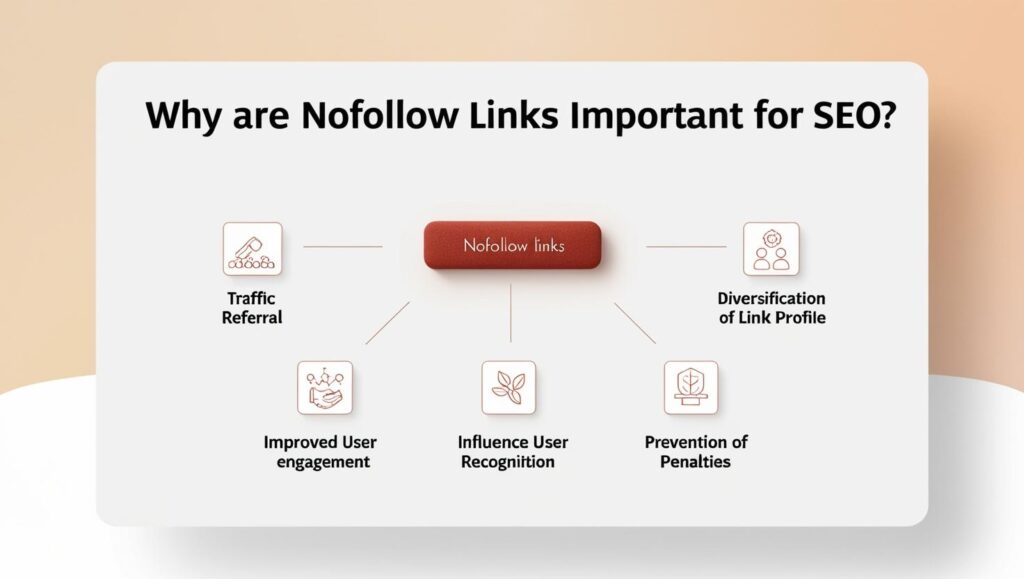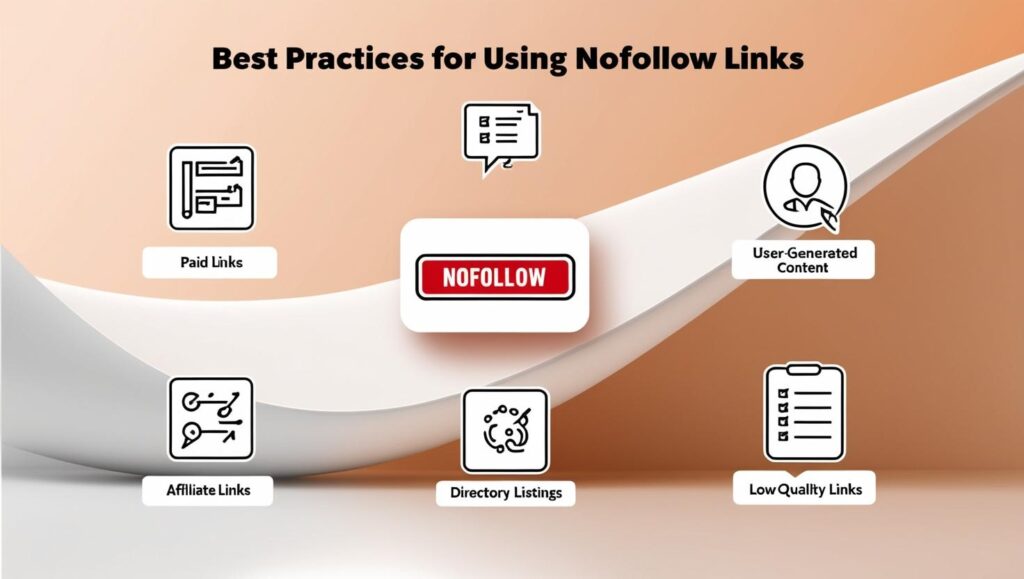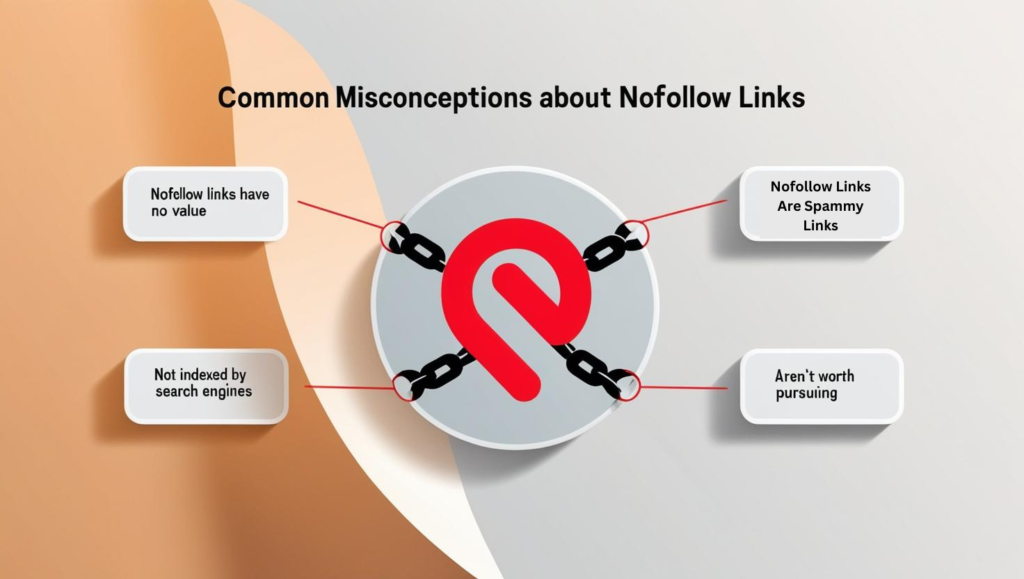In the world of SEO, backlinks play a crucial role in determining the authority and ranking of a website. While some links contribute directly to a site’s SEO efforts, others may not have the same impact. One such type of link is the “nofollow” link. But what exactly is a nofollow link, and how does it affect your website’s search engine ranking? In this article, we’ll explore the concept of nofollow links, their importance in SEO, and best practices for using them effectively.
What Are Nofollow Links?

A nofollow link is a type of hyperlink that has a specific HTML attribute (rel=”nofollow”) added to it. This attribute tells search engines not to pass on the link’s value or “link juice” to the linked page. Essentially, a nofollow link is a way to inform search engines like Google that you are linking to a page but do not want to endorse it or pass on any SEO benefits.
The main difference between a regular link (also known as a “dofollow” link) and a nofollow link lies in how search engines treat them. While a dofollow link helps to improve a website’s authority and page rank by passing link equity, a nofollow link does not.
Why Do Nofollow Links Exist?
The nofollow link was introduced by Google in 2005 as a way to combat comment spam and other forms of manipulative link building. Prior to this, it was easy for spammers to flood blog comments and forums with links that helped their websites rank higher, even though those websites may not have been legitimate.
By adding the nofollow attribute to links in certain contexts, such as user-generated content, webmasters could ensure that spammy links would not have an effect on the SEO of their website or contribute to the ranking of low-quality or irrelevant pages. Over time, the nofollow link has evolved and is now used in a variety of contexts, including social media, paid ads, and affiliate links.
Nofollow Link vs. Dofollow Link: Key Differences

To understand the full impact of nofollow links on your SEO strategy, it’s essential to compare them with dofollow links. Here’s a breakdown of their key differences:
While dofollow links are valuable for SEO, nofollow links should not be dismissed entirely. They still play a significant role in a balanced and ethical SEO strategy.
| Attribute | Dofollow Link | Nofollow Link |
| SEO Impact | Passes link juice and contributes to the linked site’s ranking | Does not pass link juice or contribute to ranking |
| Purpose | Helps improve a website’s authority and search engine rankings | Used to prevent passing SEO value or endorsement |
| Usage | Commonly used in editorial content, guest posts, and organic link building | Typically used for paid links, user-generated content, and sponsored posts |
| SEO Benefit | Provides SEO benefit for both the linking and linked websites | No direct SEO benefit for the linked website |
| Search Engine Treatment | Search engines follow and index the link | Search engines ignore the link for ranking purposes |
Why Are Nofollow Links Important for SEO?
While nofollow links don’t directly impact search engine rankings in the same way as dofollow links, they still hold value in a broader SEO context. Here are several reasons why nofollow links are important:

1. Traffic Referral
Even though nofollow links do not pass on SEO benefits, they can still be valuable for driving direct traffic to your site. A nofollow link on a popular website can bring in a substantial amount of visitors, which can translate into increased brand awareness, conversions, and sales.
2. Diversification of Link Profile
A healthy link profile is a balanced one that includes both dofollow and nofollow links. If your website only has dofollow links, search engines may see it as an unnatural link profile, which could potentially trigger a penalty. By acquiring nofollow links, you can maintain a natural-looking backlink profile that aligns with search engine guidelines.
3. Improved User Engagement
Nofollow links are often placed in areas like comment sections, forums, and social media platforms. These links can lead to improved user engagement, as they connect visitors to related content or resources. This engagement, in turn, can increase the chances of users returning to your site or sharing your content with their networks.
4. Influence on Brand Recognition
While nofollow links may not pass SEO value, they can still influence brand recognition and credibility. If your brand is linked to in high-authority or trusted websites, it boosts your reputation and visibility, even if the links are nofollow.
5. Prevention of Penalties
By using nofollow links strategically, you can avoid penalties associated with excessive link building or manipulative linking practices. Google and other search engines are constantly evolving their algorithms to detect unnatural link-building tactics. By employing nofollow links where appropriate, you help ensure that your backlink profile appears natural and authentic.
Best Practices for Using Nofollow Links
While nofollow links are useful in some contexts, it’s important to use them strategically. Here are some best practices to consider when incorporating nofollow links into your SEO efforts:

1. Use Nofollow for Paid Links
If you’re engaging in paid advertising or sponsored content, it’s important to add the nofollow attribute to any links in those ads. This ensures that the paid link does not pass on SEO value to the linked site, as per Google’s guidelines. Failure to add a nofollow attribute to paid links can result in a penalty for violating Google’s guidelines on paid link schemes.
2. Apply Nofollow to User-Generated Content
User-generated content (UGC), such as blog comments, forum posts, and social media interactions, is a common source of nofollow links. Since these types of links can be easily manipulated, they should be nofollowed to prevent spammy links from affecting your SEO rankings.
3. Use Nofollow for Affiliate Links
Affiliate marketing is a popular way to monetize websites, but it’s essential to mark affiliate links as nofollow. This prevents affiliate links from passing SEO benefits to third-party sites, which could otherwise violate search engine guidelines. Many affiliate programs provide specific guidelines for nofollow links, so be sure to follow them.
4. Use Nofollow in Directory Listings
When submitting your website to online directories, it’s wise to choose directories that allow nofollow links. This ensures that your listings won’t contribute to your backlink profile in a way that could appear spammy or artificial.
5. Leverage Nofollow for Low-Quality Links
Sometimes, you might come across a situation where you don’t want to disavow a link entirely but also don’t want it to affect your website’s SEO. In such cases, using the nofollow attribute on links from low-quality or irrelevant sites is a smart move. This way, you avoid endorsing the site without risking any potential harm to your link profile.
Common Misconceptions About Nofollow Links
There are a few common misconceptions about nofollow links that can lead to confusion. Let’s debunk some of them:

1. Nofollow Links Have No Value
While nofollow links do not pass on SEO juice, they still have value in other ways, such as driving traffic, improving brand awareness, and contributing to a natural link profile. So, while they may not directly impact rankings, they still play an important role in an overall SEO strategy.
2. Nofollow Links Are Not Indexed by Search Engines
Nofollow links are still indexed by search engines, meaning they can still appear in search results. The key difference is that search engines do not use nofollow links to influence the ranking of the linked page. Google can still crawl nofollow links to discover new pages or gather other data, even if they don’t contribute to rankings.
3. Nofollow Links Aren’t Worth Pursuing
While dofollow links are often prioritized for SEO purposes, nofollow links shouldn’t be ignored. A balanced link profile includes both types of links, and nofollow links provide indirect benefits that help strengthen your overall SEO strategy.
FAQs
Does Google crawl nofollow links?
Yes, Google does crawl nofollow links to discover new content or gather data. However, these links do not pass SEO value or influence the ranking of the linked page, as the link is not endorsed by Google.
How to check dofollow and nofollow links?
You can check dofollow and nofollow links by using browser developer tools or SEO tools like Screaming Frog, Moz, or Ahrefs. These tools identify the “rel” attribute, indicating whether a link is dofollow or nofollow.
How to create a nofollow link?
To create a nofollow link, add the rel=”nofollow” attribute in the HTML of the anchor tag. For example: <a href=”https://example.com” rel=”nofollow”>Example Link</a> ensures that the link does not pass SEO value.
Are nofollow links useful?
Yes, nofollow links are useful for driving traffic, improving brand awareness, maintaining a natural link profile, and preventing spam. They may not directly affect SEO rankings but contribute to overall online presence and credibility.
How to add nofollow to external links in WordPress?
In WordPress, you can add nofollow to external links manually by editing the HTML of your posts or using the “Link” options in the post editor to select “Add Nofollow” when inserting external links.
What is a nofollow link?
A nofollow link is a hyperlink with a rel=”nofollow” attribute, which tells search engines not to pass link equity or influence the ranking of the linked page. It’s typically used for paid, user-generated, or non-endorsed links.
Are Wikipedia links nofollow?
Yes, links on Wikipedia are nofollow. Wikipedia adds the nofollow attribute to external links to prevent them from passing link equity, ensuring that they do not impact search engine rankings of the linked websites.
What types of links should be nofollow?
Links from paid advertisements, user-generated content (like blog comments or forums), affiliate links, and untrusted or low-quality websites should be nofollow. This prevents manipulation of search engine rankings and ensures compliance with Google’s guidelines.
When to use nofollow links?
Use nofollow links when linking to paid content, sponsored posts, user-generated content, or any situation where you don’t want to pass SEO value. It’s also helpful to prevent spam and maintain a clean backlink profile.
Are nofollow links good for SEO?
While nofollow links don’t directly influence rankings, they can still be valuable for SEO by driving traffic, improving brand visibility, diversifying your link profile, and maintaining a natural backlink profile that complies with Google’s guidelines.
Conclusion
In conclusion, nofollow links are an essential part of a well-rounded SEO strategy. While they may not contribute directly to a website’s search engine ranking, they serve many other valuable purposes, including driving traffic, enhancing user engagement, diversifying your backlink profile, and preventing penalties. By understanding when and how to use nofollow links effectively, you can improve your SEO performance and maintain a natural, healthy link profile.
Remember, the key to successful SEO is a balanced approach that incorporates both dofollow and nofollow links, alongside high-quality content and other ranking factors.
Latest Posts
- Advanced On-Page SEO Techniques for Maximum Website Optimization
- Analyzing Competitor Backlinks to Find New SEO Opportunities
- Best Keyword Research Tools for Bloggers in 2024 and Beyond
- Best Practices for Image Optimization to Enhance SEO and Speed
- Best Practices for Meta Descriptions to Boost SEO and Clicks